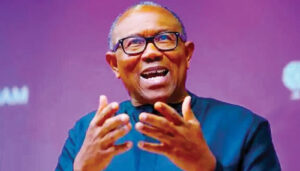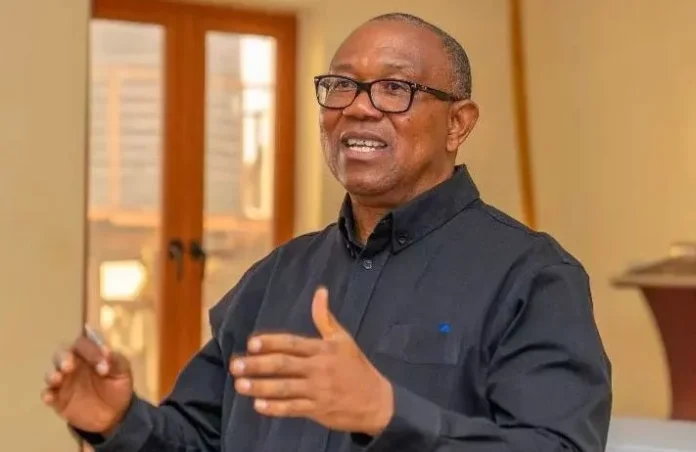Former Labour Party (LP) presidential candidate Peter Obi has stirred debate with his recent comments, suggesting that night vigils in churches be replaced with night shifts to boost productivity in Nigeria.
During an appearance on a Podcast, Obi pointed to Nigeria’s pervasive poverty and low productivity, attributing these challenges in part to an “excessive focus on religion and politics.” He argued that the nation devotes too much time to religious gatherings, time that could be redirected toward productive activities benefiting Nigeria’s economic growth.
“I’m unhappy in Nigeria; we can’t continue to breed poverty; that’s not leadership. We live in a largely unproductive society, so the only things that seem attractive here are politics and religion,” Obi stated. “We have to dismantle it. I’d rather turn night vigils into night shifts so people can be productive. I go to church; I believe in God.”

He elaborated on his perspective, saying, “However, we cannot have people attending church from Monday to Friday, morning and night. If I travel from here to my house, the only signboards you see are those of churches. If you go to the East, it’s burials, and that’s not a country. In other countries, you’ll see products.”
Obi’s remarks have sparked a range of responses among Nigerians. Some agree with his focus on productivity, while others interpret his comments as a criticism of religious practices.
Among those who disagreed is Joshua Mike-Bamiloye, son of the founder of the Mount Zion Faith Drama Ministry, Mike Bamiloye. Responding on X (formerly Twitter), Mike-Bamiloye described Obi’s statement as “insulting.”
“So now vigils are the reason Nigeria isn’t productive? Boy, the mentality of blaming church attendance for Nigeria’s problems is a very misguided one and, at best, an insult,” he wrote. “Vigils are commonly held on Fridays, right before the weekend. If we want to be productive, why not also ban recreational events, comedy shows, concerts—in fact, ban every social gathering. The hot weather seems to have corroded some minds to the point that they fail to think clearly and address the real problems.”
The conversation around Obi’s proposal continues, reflecting the divide between those who advocate for increased productivity and others who see religious gatherings as essential to Nigerian life and identity.




